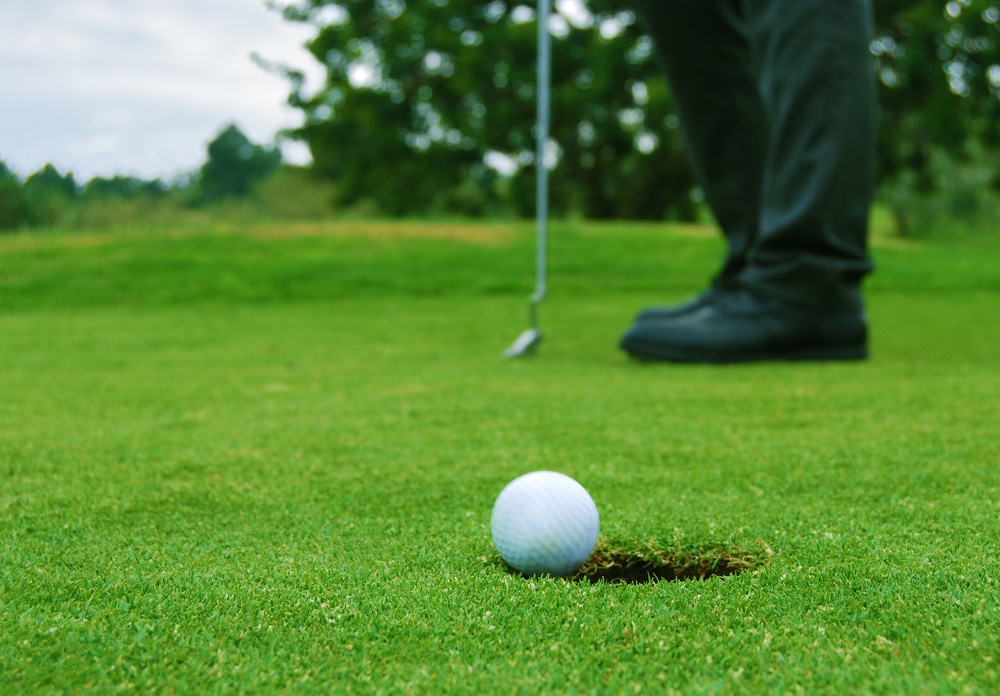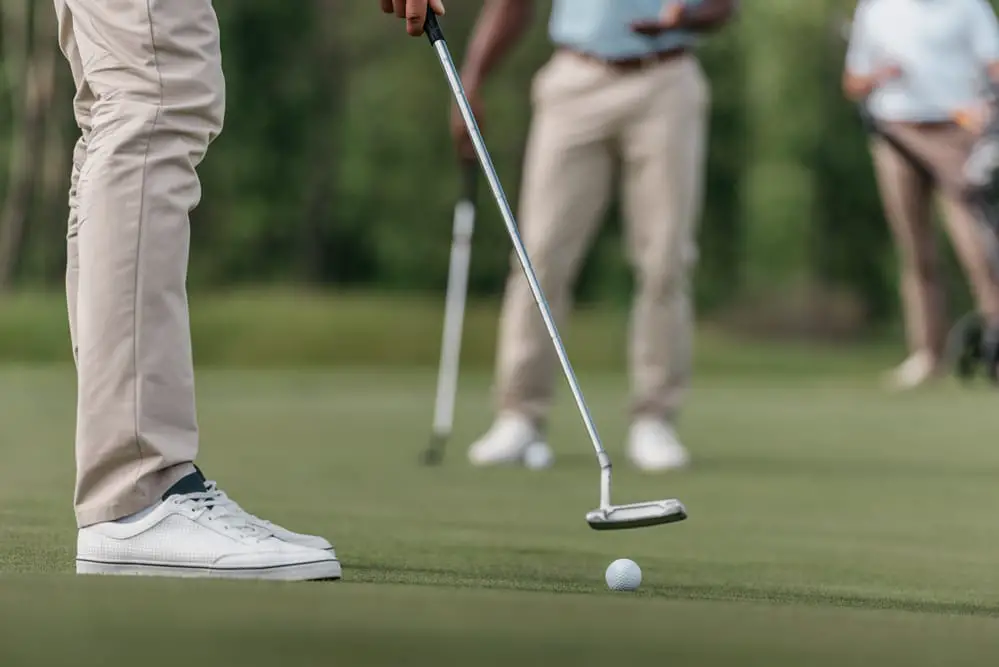Last Updated on November 23, 2023
A birdie in golf is an exciting and coveted achievement for any golfer, but it’s not always easy to score one. It takes skill, strategy and luck – plus the right psychological approach. In this blog post, we’ll explore what a birdie is in golf, how you can go about scoring one (including some common strategies), and the benefits of doing so. So if you’re looking to make your mark on the green with a brilliant birdie shot, then read on.
Table of Contents:
- What Is a Birdie?
- How to Score a Birdie
- Common Strategies for Scoring Birdies
- Benefits of Scoring Birdies
- Conclusion
What Is a Birdie?
A birdie is a score of one stroke under par on a hole in golf. It is the second-best score that can be achieved after an eagle. Achieving a birdie requires skill and accuracy from the golfer as they must hit their shots with precision to get close enough to the pin for their next shot to put them into position for a birdie.
For example, if you are playing on a par 4 hole and your tee shot lands you within 100 yards of the green, then your approach shot will need to land you within 20 feet or less of the pin for you to have any chance at making a birdie. If it does not land that close, then chances are that your third shot (or fourth, depending on how far away from the green your approach left you) will be too difficult for even experienced players to make up and down from there.
Making birdies also requires a bit of luck, as sometimes all it takes is one good bounce off of something like trees or rocks near where your ball landed to end up closer than expected. This could give you just enough room between yourself and the pin so that, when combined with an accurate chip or pitch shot, it puts you in a position for success.
How to Score a Birdie
Scoring a birdie is the goal of any golfer. Scoring a birdie is a challenging achievement, but with practice and dedication, it can become second nature. A birdie is achieved by completing a hole in one stroke less than par.
The first step to scoring a birdie is understanding your own strengths and weaknesses and those of your opponents. Knowing what clubs work best for each situation will help you make better decisions on the course. Knowing which club works best for long or short shots, you can plan accordingly and increase your chances of success.
Once you have identified which clubs are most effective for certain situations, practice using them until they become second nature to you. This will give you more confidence in the course and allow you to focus more on strategy rather than technique during playtime. Additionally, practising regularly helps improve muscle memory so that even under pressure-filled situations such as tournaments, your body knows how to react instinctively without having to think too much about it beforehand
Another important factor in achieving a birdie is proper aim at the target area before taking each shot. Take some time before hitting off from each tee box by studying the terrain around it carefully and visualising where exactly would be the ideal place to land the ball after every shot. Doing this allows golfers to understand their capabilities better while also helping them develop strategies based on these observations.
Finally, don’t forget about mental preparation before playing each round. Being able to stay focused throughout the entire game, avoiding distractions, and controlling emotions during stressful moments all contribute towards the successful completion of holes with the fewest possible number of strokes. A positive attitude, along with determination, goes long way in making sure that the golfer stays motivated till the end, no matter how tough conditions may seem at times.
Common Strategies for Scoring Birdies

Using shorter clubs off the tee is one of the most effective strategies for scoring birdies. Shorter clubs require less power to hit, which can help you keep your shots on target and give you more control over where your ball lands. Additionally, using a shorter club off the tee will leave you with a shorter approach shot into the green, making it easier to get close enough for a birdie putt.
Playing to your strengths is another key strategy when trying to score birdies. If you are confident in hitting long drives or have an accurate short game, focus on those areas and use them as an advantage when playing golf. Knowing what type of player you are can also help guide decisions like club selection and risk-taking during each round of golf.
Taking calculated risks is sometimes necessary if you want to score birdies consistently. This could mean going for a par 5 in two shots instead of laying up or attempting difficult chip shots around the green that other players might not attempt. Risk-taking should always be done thoughtfully; don’t take unnecessary chances that could cost you strokes rather than gain them.
Overall, there are several strategies that can boost your chances of scoring birdies on the course, including using shorter clubs off the tee, playing to your strengths, and taking calculated risks when needed. With practice and dedication, these techniques will become second nature so that achieving consistent scores becomes much easier.
Benefits of Scoring Birdies
Scoring birdies can be a great way to improve your game and lower your scores. Birdies are when you score one stroke under par on any given hole, meaning that if the hole is a par 4, then you would need to get the ball in the cup in three strokes or less. This can be incredibly beneficial for golfers of all skill levels as it allows them to reduce their overall score and gain confidence while playing.
One of the main benefits of scoring birdies is that they help build momentum during rounds. When players make birdie after birdie, they often feel more confident about their game, and this helps them stay focused throughout the round. Additionally, making multiple birdies gives players an edge over their opponents since they’re able to finish holes faster than those who don’t make as many birdies.
Another benefit of scoring birdies is that it reduces stress levels on the course since there’s less pressure to hit perfect shots every time out. When players know that even if they miss a shot or two here and there, they still have a chance at getting back into contention with just one good swing, it takes some of the pressure off from having to hit perfect shots each time out.
Finally, scoring lots of birdies also has psychological benefits for golfers since it boosts self-confidence and makes them believe in themselves more when playing competitively against others. Knowing that you can consistently shoot below par gives golfers an extra boost when competing against other skilled players, which could give them an advantage over their opponents come tournament time.
Overall, scoring plenty of birdies has numerous advantages for both amateur and professional golfers alike. Not only does it help reduce scores, but it also builds momentum during rounds while boosting self-confidence at the same time. It can give players an edge over their opponents in tournaments, as well as reduce stress levels on the course since there is less pressure to hit perfect shots every time out. All of these benefits make scoring birdies a great way to improve your game and lower your scores.
Conclusion
Scoring a birdie in golf is an exciting and rewarding experience. It requires skill, practice, and strategy to achieve the goal of getting one step closer to par. Knowing what a birdie is, how to score one, common strategies for doing so, and the benefits of scoring them can help you reach your goals on the course. With some dedication and hard work, you can make that sweet sound of success when you get a birdie in golf.



